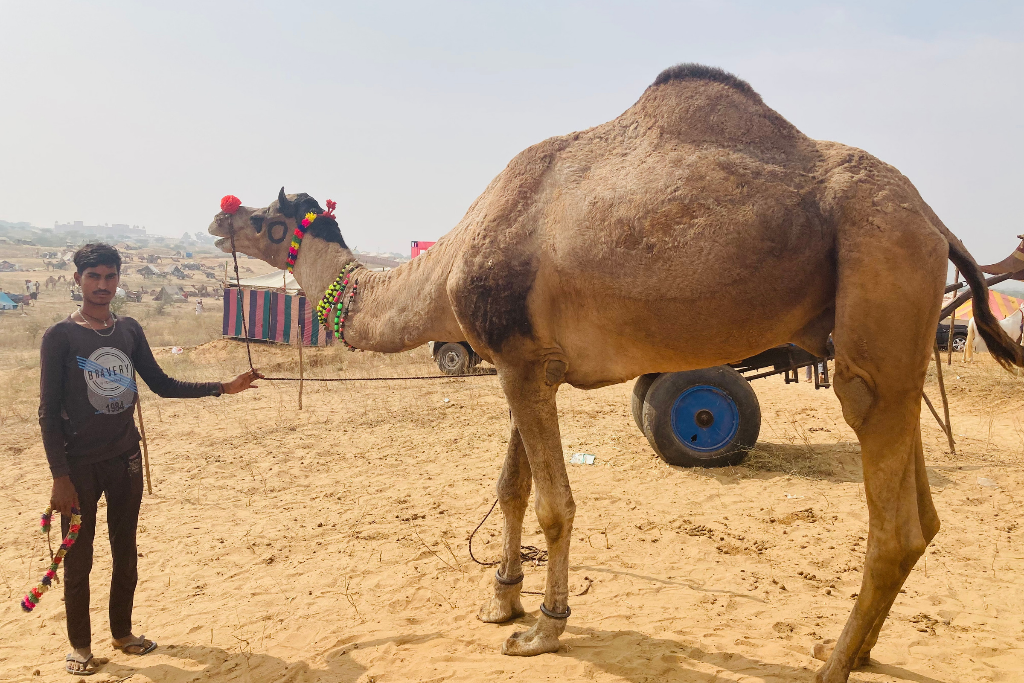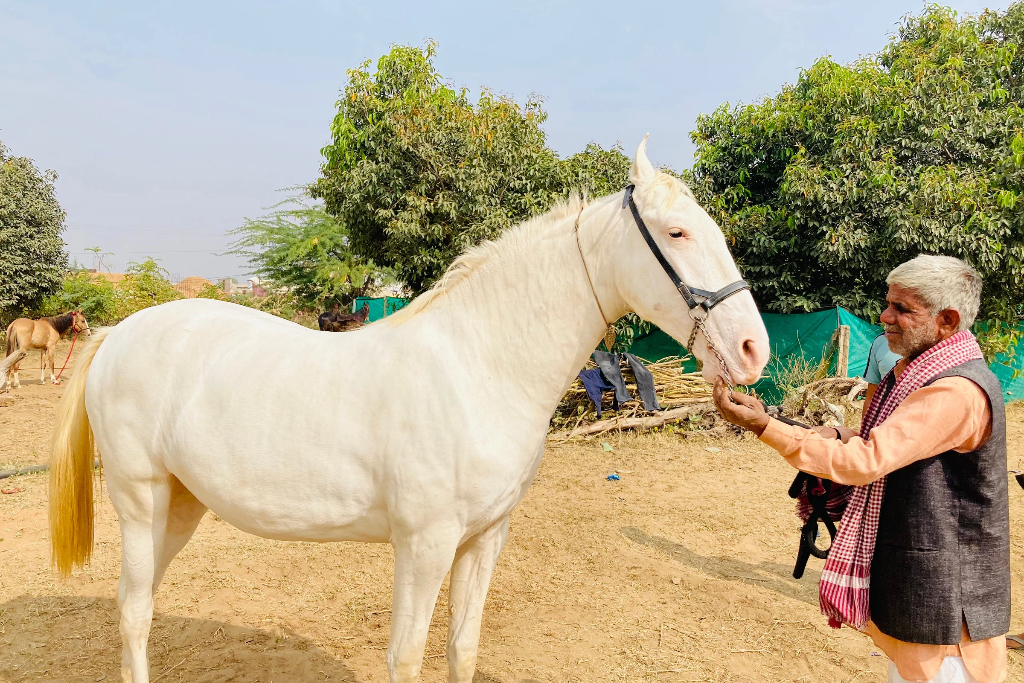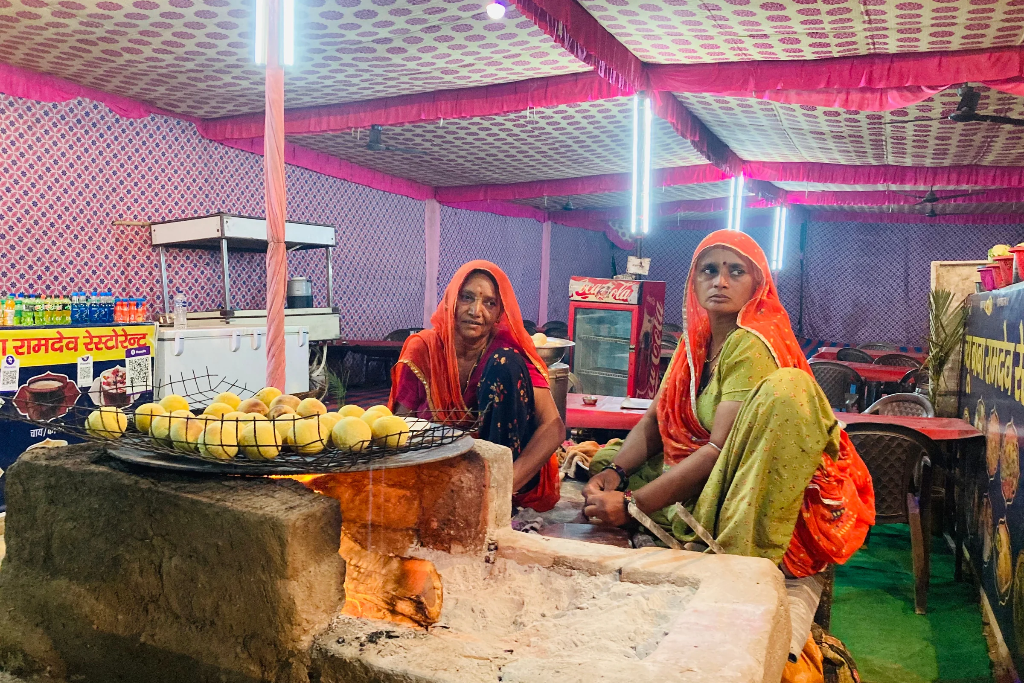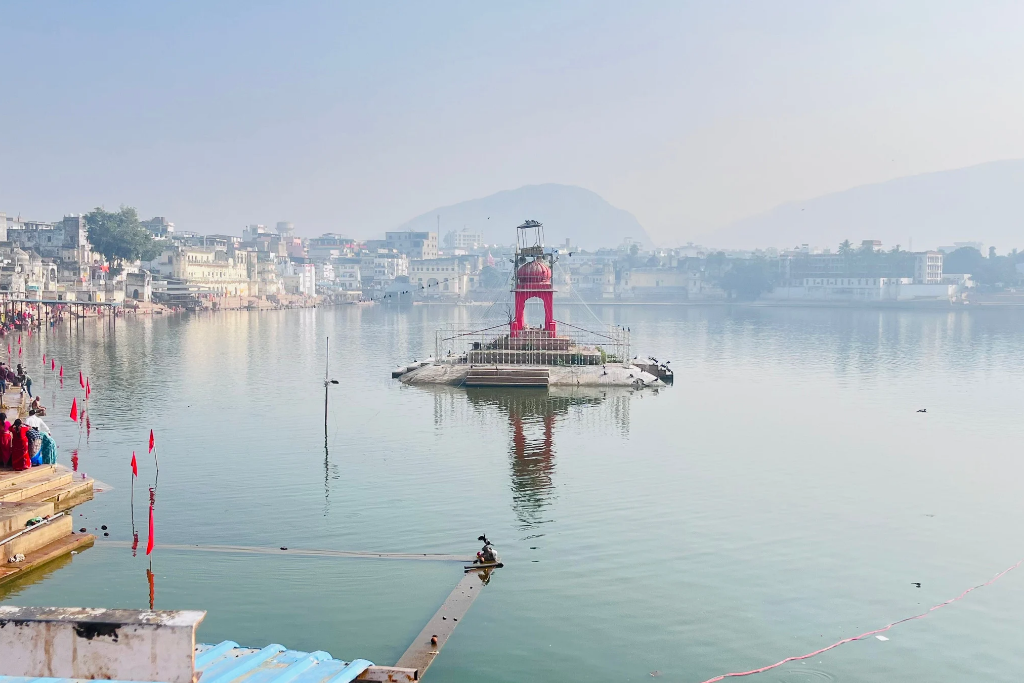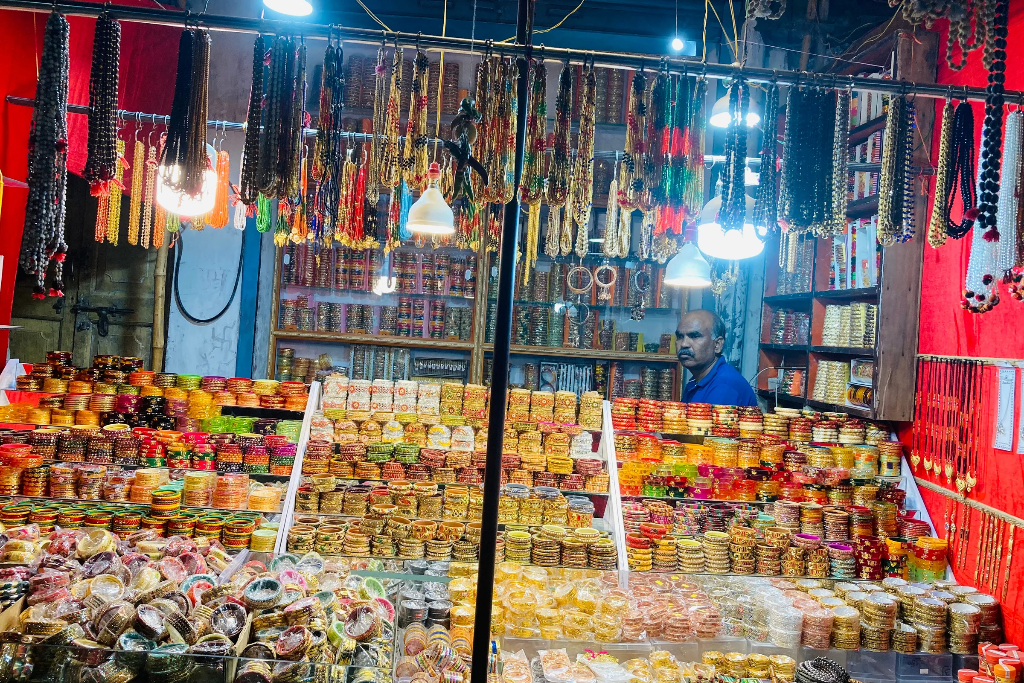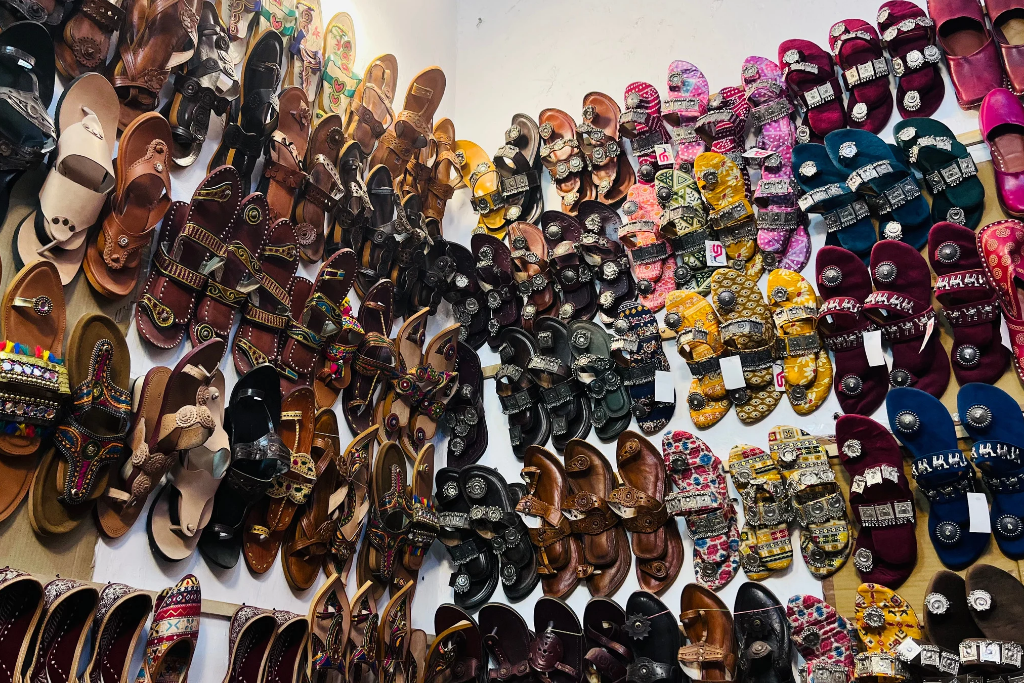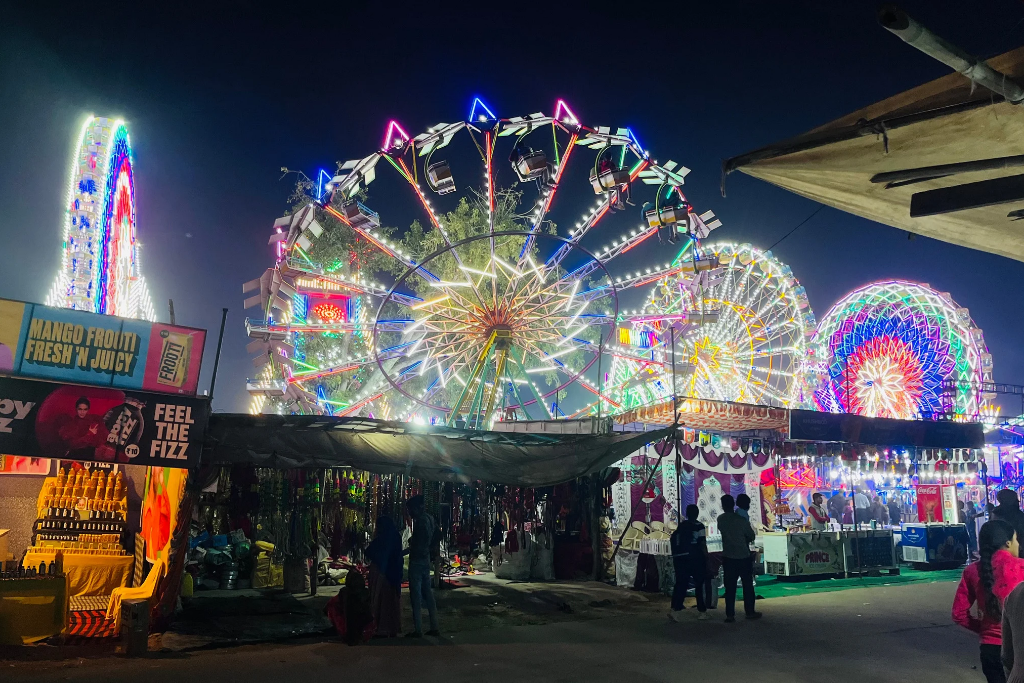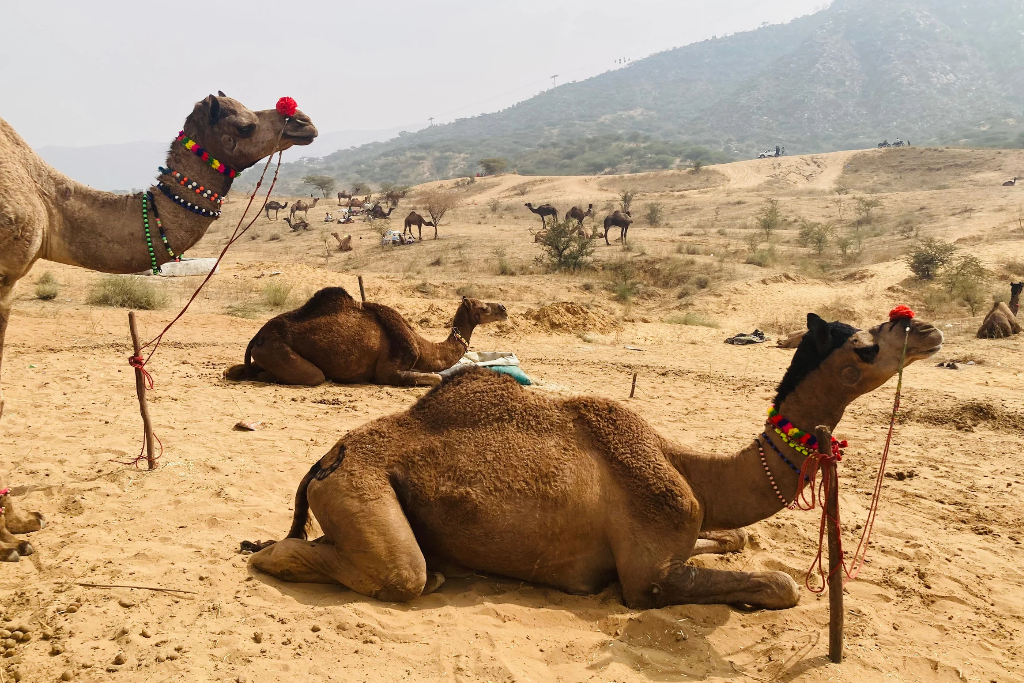
A day at Pushkar camel fair
A day spent at Pushkar camel festival unfolds a tornado of sights, sounds and feelings. We made a touch-and-go visit and returned with a mind full of memories and a memory card full of photos.
A whirlwind trip. A storm of emotions. A day spent at Pushkar during the annual camel festival is too less to soak in the vibe of the holy town in Rajasthan, and yet offers an overwhelming swirl of experiences. From an early morning visit to the Brahma temple to the late-night jaunt to the fair ground lit up by Ferris wheels, even the briefest of tours of Pushkar at this time of year is sure to leave you huffing, puffing and asking for more.
Also Read: Once a ‘burden’, double-humped camel is a prized animal in Ladakh today
Organised every year after Diwali, around October or November, the camel fair transforms Pushkar into a bustling site filled with villagers, international tourists and of course, camels. Well, horses too. Buyers and sellers gather from near and afar to bargain for the best deals, which can go up to a few lakhs of rupees. It is said to be the largest camel fair in the world.
“Prices for camels of Jaisalmeri breed range between Rs 30,000 to Rs 5 lakh, with the animals trained in skills such as dancing fetching more,” said Ram Lal, a local youth who was at the fair to sell his Jaisalmeri camel. His asking price? Rs 1 lakh. Cheaper options are available for the Bikaneri variety, according to Ram Lal, with prices starting at Rs 25,000.
Also Read: Amul’s camel milk a lifeline to depleting Kharai camel herders in Gujarat’s Kutch
Camels are not the only four-legged friends of humans being traded during the fair. The vast sandy grounds surrounding the Pushkar town are taken up to a large extent by horses too. Pristine white, shiny black, earthy brown, piebald, skewbald — the equines occupy multiple stretches demarcated for the horse market. Prices generally start at around Rs 50,000 and can go up to several lakhs.
“I am asking for Rs 6 lakh, but am open to negotiations,” said Girish Chand Yadav, who had come from Mathura in Uttar Pradesh to sell his nukri (white) horse. The price was beyond the reach of Mohammad Sharif, a buyer from Jalgaon in Maharashtra who was examining Yadav’s horse. “I can spend up to Rs 1 lakh,” said Sharif, who needed a horse to move around his farm spanning several acres.
Also Read: Camel herders of Kachchh fall into decline as commons shrink
That it is a venue for sale of livestock is made clear much before the animals come into sight. Sellers offering animal accessories set up their makeshift shops on both sides of the road connecting the town to the grounds marked for the animal bazaar. Harnesses, saddles, tassels, garlands and bells hang in bunches, vying for close attention with ankle bells and pompoms stacked beneath.
Also Read: Camel milk inspires hope for herders
The annual fair is also the time when Pushkar comes alive with makeshift kiosks selling local food. The town, which attracts tourists all through the year, already has multiple restaurants selling Rajasthani cuisine. But the annual event lends a different vibe to roadside eating. Women dressed in traditional attire, their heads covered with veils sit by the fire to prepare fluffy rotis and spongy batis (wheat flour balls) that are served with a bowl of hot ghee-laden dal and churma (a dessert made with wheat, sugar and ghee). Other regional delicacies like gatte ki sabzi (gram flour dumplings in tomato gravy) and lahsun (garlic) chutney are also a must-try here.
Also Read: Add Jaisalmer’s desert festival to your bucket list
When the camel fair is not being held, life at Pushkar revolves around the Brahma temple. The temple is situated near the lake after which the town is named. According to the Hindu mythology, the lake was formed when Lord Brahma, the four-headed god who created the universe, dropped a lotus here. The name Pushkar is derived from the words pushp (flower) and kar (hand). The over 50 ghats (steps leading to the water body) are thronged by hundreds of devotees every day who perform rituals here to pray for peace for the departed souls of their loved ones.
Pushkar is said to be home to the only temple in the country dedicated to Lord Brahma. Devotees and tourists – Indian and foreign — start queuing up right at dawn to have a glimpse of the serene idol housed in the inner sanctum. Like any other temple in the country, the pathways leading to the sacred site are lined with shops selling sweets and flowers to be offered to the deity.
The streets located around the temple present a heady kaleidoscope of brightly coloured merchandise. Jewellery shops make a bulk of the establishments. It’s hard to resist taking long looks at the bangles being sold here, even if you are not a jewellery lover. Made of lac, shells and even plastic, and embellished with beads, mirrors and crystals, the bangles and bracelets are available in multiple hues, diameters and breadths. Fancy earrings, necklaces and anklets take prized spots on the shelves too, and fans of folk jewellery can take their time to browse through the collections with much satisfaction.
Another halt in Pushkar for shopping enthusiasts has to be the shops selling leather footwear. Traditional chappals and juttis for men, women and children are available for Rs 200 to Rs 1,000, the embroidered ones costing more. The shopkeepers are prepared to negotiate the prices, and almost always bring them down a notch.
For a temple town that wakes up at dawn, the camel festival is also the time to wrap up the day later than usual. Neon-lit roller coasters and Ferris wheel rides enliven the evenings, and the razzmatazz continues till almost 10 pm, which is quite a late hour for small towns in India. If you are calling it a day after one of these rides, you are sure to go to bed with a heady feeling – in more ways than one.
Text by Pallavi Srivastava. Photos by Pallavi Srivastava and Sanjana Kaushik
Pallavi Srivastava is Associate Director, Content, at Village Square.
Sanjana Kaushik is Manager at Village Square.

